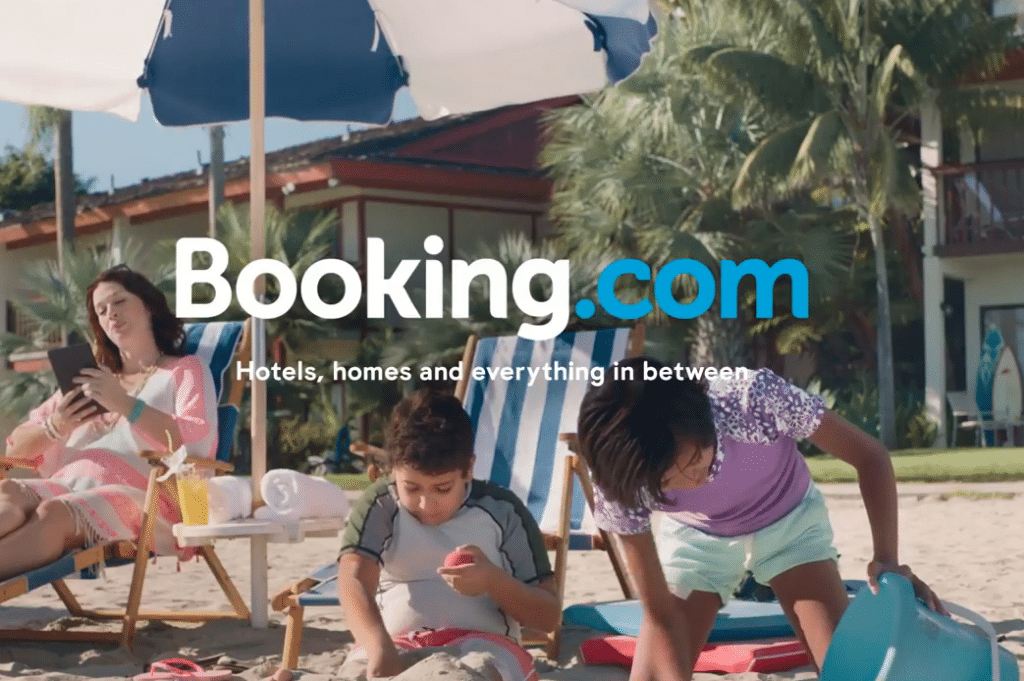Skift Take
With less fanfare than hotels, but with a ton of TV spend, Booking Holdings is intent on increasing its share of direct bookings. Anything that gets in its way, including metasearch sites that go out of favor, will be collateral damage.
Not to be outdone by hotel chains, which have mounted protracted direct-booking campaigns over the last few years, Booking Holdings sees attracting more direct bookings and winning customer loyalties as key elements of its strategy.
While Booking Holdings chief financial officer David Goulden told financial analysts Wednesday that the direct channel is already the company’s largest, CEO Glenn Fogel added that the mix of direct bookings are mounting.
“Direct is growing and we are very pleased with that growth rate,” Fogel said.
Increasing the portion of its marketing spend devoted to brand advertising, mostly on TV, and reducing dependence on third party sites — such as Trivago — “is so important to our strategy in the long run,” Fogel said. The CEO added that when consumers think about travel, he wants them to think about Booking Holdings and he wants them to come directly to shop and book.
Fogel said Booking would continue to lean into third-party sites that help the company build its business and will lean away from companies that are detrimental to building Booking’s business. And it’s not just a question of return on investment, he added, as Booking also takes into account the wisdom of spending with companies that will compete against Booking in the long run.
Booking’s direct strategy comes as it tries to optimize its marketing spend. In other words, it is willing to sacrifice some revenue growth if it means a more efficient spend of its advertising dollars.
When one analyst asked Fogel why the company’s brand advertising had been ratcheted back over the last few quarters, Fogel said the company tests what works, and won’t “open the spigot” until it can do so and spend more with “high certainty.”
It should be noted regarding the hotels’ direct-booking campaigns, Booking Holdings officials have said they haven’t felt a material adverse impact. Booking, though, may have been less in the line of fire than Expedia because Booking is stronger in Europe, where independent hotels, rather than chains advocating direct bookings, dominate.
Alternative Accommodations
In other news, Booking announced that it had increased its alternative accommodations listings 28 percent to 5.2 million. The company overall has 28.2 million reported listings, including hotels and alternative accommodations.
Fogel acknowledged, though, that the company needs to increase the right type of listings in key geographies, and its roster falls short of this goal at this juncture. Fogel said adding single-family homes is a key priority.
On another hot-button issue, the new European privacy regulations, known as the General Data Protection Regulation, Fogel said it won’t have a material impact on Booking’s business.
For the first quarter, Booking grew its net income 33.2 percent to $607.2 million on $2.9 billion in revenue, a 21 percent jump. The revenue figure, which included $45 million in revenue from Momondo, acquired in July, included a $27 million favorable adjustment related to an OpenTable loyalty program liability.
The Daily Newsletter
Our daily coverage of the global travel industry. Written by editors and analysts from across Skift’s brands.
Have a confidential tip for Skift? Get in touch
Tags: alternative accommodations, booking holdings, direct bookings, earnings
Photo credit: Pictured is a still from Booking.com's Water Sports TV ad. The company thinks TV advertising will be key to win customer allegiances and capture more direct bookings. Booking Holdings
